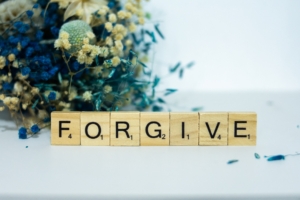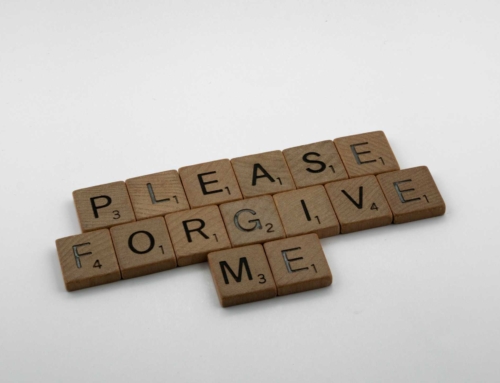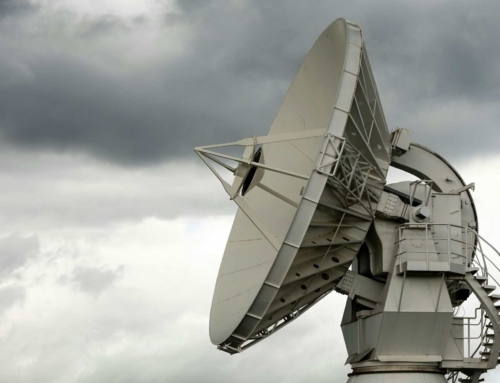 Today I want to talk about a topic that is the cornerstone of the Christian faith: forgiveness. In my time as a mental health counselor, I’ve found the topic of forgiveness to often be either misunderstood, undervalued, or flat out triggering in some cases.
Today I want to talk about a topic that is the cornerstone of the Christian faith: forgiveness. In my time as a mental health counselor, I’ve found the topic of forgiveness to often be either misunderstood, undervalued, or flat out triggering in some cases.
In this article, I will share what forgiveness is and what it isn’t. I also want to discuss how forgiveness is transformative to our hearts, the wounds we carry, and our relationships. This is a complex topic, so stay tuned for a follow-up article delving into this more!
Let’s begin by talking about what forgiveness is and what it isn’t.
What forgiveness is.
- The work of Christ on the cross when He died and rose again after taking on the sin, shame, and suffering of the world to provide a way for sinners (all of us) to be able to be with God forever and to receive the Holy Spirit’s presence in us.
- Agreeing with Christ that what He did on the cross is true and powerful enough to cover any sin (done by us or to us).
- A one-time act (when we acknowledge Christ’s saving work on the cross to forgive our sins for the first time: justification) and a continuous process (until we are fully redeemed, this is, with Christ, we will both need to forgive others and ask for forgiveness for ourselves: part of the process of sanctification).
- A weight that is lifted when we acknowledge the judgment of what needs to be forgiven isn’t in our own hands, but in the good, perfect, faithful, and just hands of God our Father.
What forgiveness isn’t.
- Invalidating sin done against us or our experience of suffering
- A guarantee of or need for reconciliation
- Placing yourself in harm’s way
- A declaration that justice isn’t needed or won’t happen
- Something we accomplish (this is Christ’s work!)
I would imagine after reading these lists that many questions have been stirred up, or perhaps you may even feel triggered but some of what has been written. I get it. This is totally understandable, but I implore you, dear reader, to press on and hear me out. I believe God has important things for you here. Let’s take a look at why forgiveness is so important.
The valuable treasure of forgiveness.
Forgiveness is an overlooked treasure that is there for us to actively accept and participate in, but we often neglect its value or we are taught it as a cheap exchange. However, forgiveness is weighty. Forgiveness comes at a cost. But, the rewards reaped when we participate in it and accept it are priceless.
Barriers to forgiveness.
Justice.
 I think one of the reasons we don’t forgive others is because we feel we need to hold onto this injustice that has happened to us. Once again, I have deep understanding and empathy for this – more than I can express here. However, this process of holding onto the sins done against us creates a false sense of control.
I think one of the reasons we don’t forgive others is because we feel we need to hold onto this injustice that has happened to us. Once again, I have deep understanding and empathy for this – more than I can express here. However, this process of holding onto the sins done against us creates a false sense of control.
We are not ultimately in charge of justice. Justice was created by God Himself when humans brought sin and suffering into the world and justice was created, in part, for God to right the wrongs of this world brought about by humans. Here are just a couple of the verses of the Bible that remind us that God is just and He will not overlook the wrongs done to His children:
For the wrongdoer will be paid back for the wrong he has done, and there is no partiality. – Colossians 3:25
Beloved, never avenge yourselves, but leave it to the wrath of God, for it is written, ’Vengeance is mine, I will repay, says the Lord.’ – Romans 12:19
When we choose to forgive, we are releasing judgment into the hands of the Creator of judgment. When we forgive, we in essence say, “I believe that Christ will right this wrong and that justice will be served, even if I don’t see it while I’m here on Earth.”
This of course does not negate earthly justice systems such as discipline from a parent to courts of law and punishment for wrongdoing. These things can co-exist as we learn and choose to walk in forgiveness in our hearts.
The power of the cross.
Another aspect of forgiveness that is pertinent to remember and consider is that it is not something that we are actually doing or accomplishing. Once again, this powerful work is from Christ. He created forgiveness, He is forgiveness, He demonstrated and forgave us when He took our sins (done against Him, an innocent) on the cross and died in our place.
When we forgive someone who has hurt us, we are in essence saying, “I believe that what Christ did on the cross is sufficient to cover this hurt done against me. I agree with the power of the cross. I remember that He knows of my sufferings because He too suffered at the hands of others for something He did not do (and in a greater way).”
Power.
 One of the misconceptions of forgiveness is that we lose our power. Once again, just as it was with control, this is a false sense of power to begin with. On the contrary, when we are holding onto unforgiveness, we are actually allowing the one who sinned against us so much power in our lives. One of the things about unforgiveness is that it always comes with bitterness and resentment.
One of the misconceptions of forgiveness is that we lose our power. Once again, just as it was with control, this is a false sense of power to begin with. On the contrary, when we are holding onto unforgiveness, we are actually allowing the one who sinned against us so much power in our lives. One of the things about unforgiveness is that it always comes with bitterness and resentment.
Bitterness and resentment are invasive and inevitably spread into all areas of our lives. If we are thinking of our hearts as a garden, bitterness and resentment are invasive weeds that grow deeper and stronger over time and choke out the beautiful fruit that used to be there. This truly is so tragic and, dear reader, is not what God wants for us.
It is the fruits of the Spirit we are to cultivate in our tender hearts, not invasive weeds that choke them out and bury them down deep. I think this is part of the reason we need to actively guard our hearts against things like bitterness and resentment.
Healing and forgiveness.
Keep reading, friend, because hope is not far off! Today is the day we can choose forgiveness instead. Today is the day we can trust that Christ’s work on the cross is sufficient to cover these sins against us. I know it’s excruciating. I know it’s painful. I know it’s costly.
It’s so costly, that Christ Jesus, our perfect Lord and Savior, had to die for it. But . . . when we choose to walk in forgiveness and agree with what Christ did on the cross and hand judgment over to Him, we begin to uproot the pervasive weeds of bitterness and resentment.
The more those weeds are uprooted as we practice forgiveness continuously, the more room there is in the garden of our heart for those beautiful fruits to flourish! When this happens, the power the person we forgave has over us lessens.
As we deal with our bitterness and resentment and issues of unforgiveness that are attached, more and more areas of our life that need forgiveness applied to them begin to surface and we can begin to walk in forgiveness through those situations too. We begin to heal wounds that have been buried and have needed tending to for a long time.
We begin to be less hurt in general, we become less angry and less cynical because with those pervasive roots gone, there is now so much room for joy! There is so much room for peace! There is so much room for all the other fruits of the Spirit! The weeds of bitterness and resentment are overtaken by the beautiful fruits of the Holy Spirit’s active work in our hearts!
Counseling and Forgiveness
 Forgiveness is an event, but it is also a process. A trained Christian counselor can help you walk through that process. They can help you to voice what needs to be forgiven, validate the pain of that which needs to be forgiven, and help you understand what feelings you have related to it as well.
Forgiveness is an event, but it is also a process. A trained Christian counselor can help you walk through that process. They can help you to voice what needs to be forgiven, validate the pain of that which needs to be forgiven, and help you understand what feelings you have related to it as well.
I am constantly walking clients through specific forgiveness work which I have found to be both powerful and helpful. In a future article, I will walk through what this looks like, so stay tuned for that. In the meantime, reach out for counseling to begin your journey of forgiveness today!
“Forgiveness”, Courtesy of Alex Shute, Unsplash.com, CC0 License; “On the Road”, Courtesy of Mateusz Syta, Unsplash.com, CC0 License; “Side Hug”, Courtesy of Melanie Stander, Unsplash.com, CC0 License; “At the Cross”, Courtesy of Jametlene Reskp, Unsplash.com, CC0 License









